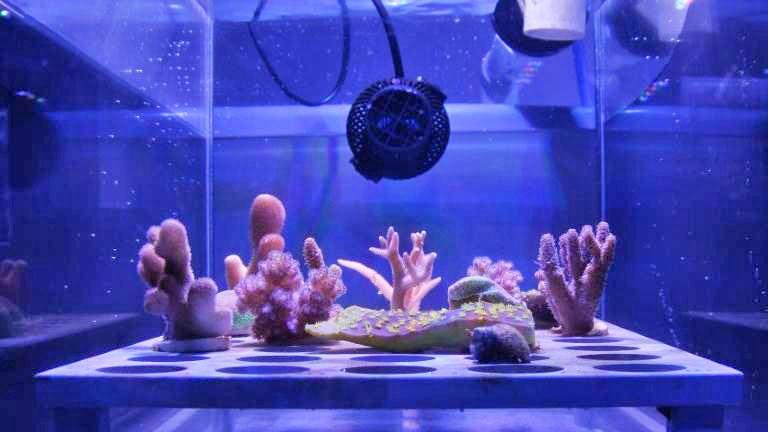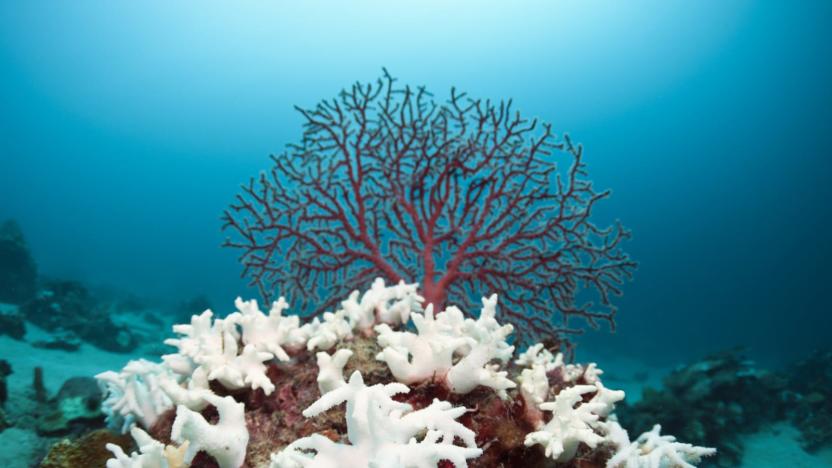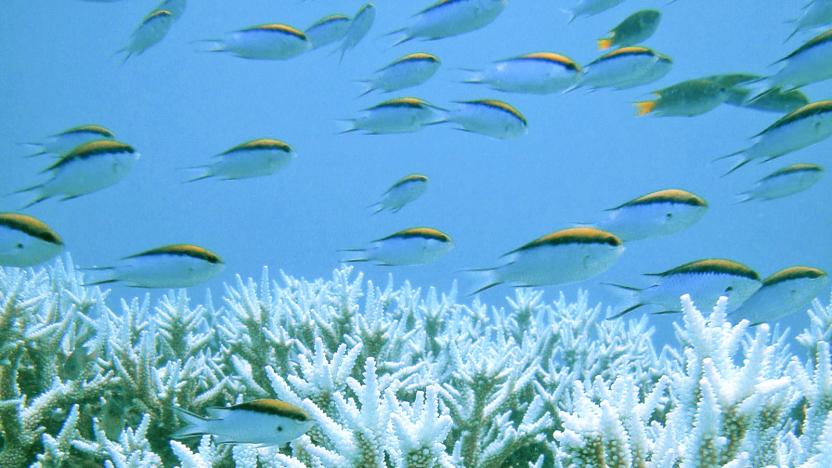GreatBarrierReef
Latest

Floating calcium 'sun shield' could protect the Great Barrier Reef
Scientists in Australia are testing a new technology that may help protect the endangered Great Barrier Reef from environmental degradation. An ultra-fine biodegradable film, 50,000 times thinner than a human hair, could be used as a floating "sun shield" to protect the reef from the effects of coral bleaching.

The endangered Great Barrier Reef is not in danger, says UNESCO
The United Nations Educational, Scientific and Cultural Organization (UNESCO) has voted not to add Australia's Great Barrier Reef to its list of sites in danger. The group's baffling decision occurred despite the reef's currently perilous state, where back-to-back coral bleaching events threaten more than two-thirds of its length. Even worse, is that UNESCO published a paper just last month, saying that if nothing was done, the Reef would die in a century. The cause of this spectacular act of cognitive dissonance is political, thanks to hard lobbying from Australia's government.

Global coral bleaching event may finally be ending
For the last three years, coral reefs in the Atlantic, Pacific and Indian oceans have been devastated by bleaching due to high ocean temperatures. But now, after looking at satellite and model data, the NOAA says that this terrible event might finally be at an end.

Artificially bright clouds might save the Great Barrier Reef
Australia's Great Barrier Reef is dying due to changes in ocean temperature, and conventional attempts to save it (such as improving water quality or limiting fishing) haven't panned out. However, scientists might have an unusual approach that works: tweaking the clouds above the reef. They're investigating the possibility of lowering the ocean temperature by artificially brightening clouds, increasing their ability to reflect heat away from the sea below. It's not as far fetched a concept as it sounds.

The Great Barrier Reef's fate rests on slowing global warming
There's no question that the Great Barrier Reef and other coral fields are hurting as a result of rising water temperatures. But is there a relatively straightforward way to save them, or do they require more drastic action? Unfortunately, it's not looking good. Researchers have found that typical efforts to fight coral bleaching, such as improving the water quality or tightening fishing controls, haven't helped much at all. Whether an area was immaculate or dirty, it was just as susceptible to damage. The four large-scale bleaching events in the past two decades were the result of increased water heat -- that is, climate.

Record swathes of the Great Barrier Reef died in 2016
The Great Barrier Reef lost more coral to bleaching in 2016 than in any other year on record, according to scientists at the ARC Centre of Excellence for Coral Reef Studies. The northern area was hit the worst: A region spanning 435 miles at the tip of the reef lost 67 percent of its shallow-water corals over the past nine months alone.

Coral reefs will continue dying unless carbon output drops
Growing an endangered species of coral in a lab is one thing, but rebuilding a reef damaged by ocean acidification is a complete other. On paper, though, it's possible. A group of researchers attempted to counter the effects of rising carbon dioxide levels around Australia's Great Barrier Reef by pumping sodium hydroxide into lagoons that were isolated from the ocean during low tide, according to The Verge.

Google dives deep to bring underwater photos of the Great Barrier Reef this September
Your next trip to the Great Barrier Reef could be from the comfort of your home now that Google's partnered with Catlin SeaView Survey, the University of Queensland's Global Change Institute and the Underwater Earth organization to document this amazing ecosystem. Equipped with a special underwater camera capable of withstanding depths of 328 feet, the survey aims to photograph 50,000 shots in 360-degree panoramic view and incorporate them into Google Earth and Google Maps. Dubbed "Google SeaView," it seeks to open opportunities for increased conservation as well as a free look for wanna-be world travelers who can't afford a plane ticket down under. As an added perk, the collected data may also be used to help future ship captains navigate through the treachery of the intricate coral highways. Check past the break for more info on the survey and plenty of footage teeming with aquatic wildlife.






